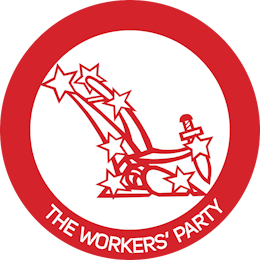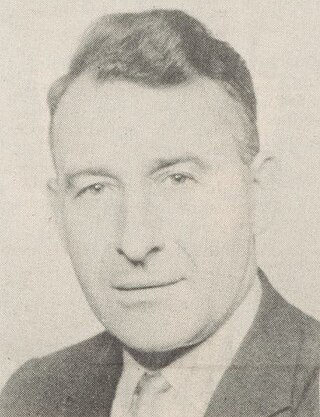Related Research Articles

The Provisional Irish Republican Army, officially known as the Irish Republican Army and informally known as the Provos, was an Irish republican paramilitary force that sought to end British rule in Northern Ireland, facilitate Irish reunification and bring about an independent republic encompassing all of Ireland. It was the most active republican paramilitary group during the Troubles. It argued that the all-island Irish Republic continued to exist, and it saw itself as that state's army, the sole legitimate successor to the original IRA from the Irish War of Independence. It was designated a terrorist organisation in the United Kingdom and an unlawful organisation in the Republic of Ireland, both of whose authority it rejected.
Sinn Féin is an Irish republican and democratic socialist political party in both the Republic of Ireland and Northern Ireland.

The Irish Republic was an unrecognised revolutionary state that declared its independence from the United Kingdom in January 1919. The Republic claimed jurisdiction over the whole island of Ireland, but by 1920 its functional control was limited to only 21 of Ireland's 32 counties, and British state forces maintained a presence across much of the north-east, as well as Cork, Dublin and other major towns. The republic was strongest in rural areas, and through its military forces was able to influence the population in urban areas that it did not directly control.

Brendan Corish was an Irish Labour Party politician who served as Tánaiste and Minister for Health from 1973 to 1977, Leader of the Labour Party, Minister for Social Welfare from 1954 to 1957 and from 1973 to 1977, Parliamentary Secretary to the Minister for Defence and Parliamentary Secretary to the Minister for Local Government from 1948 to 1951. He was a Teachta Dála (TD) from 1948 to 1982.

The Workers' Party is an Irish republican, Marxist–Leninist communist party active in both the Republic of Ireland and Northern Ireland.

Republican Sinn Féin or RSF is an Irish republican political party in Ireland. RSF claims to be heirs of the Sinn Féin party founded in 1905; the party took its present form in 1986 following a split in Sinn Féin. RSF members take seats when elected to local government in the Republic of Ireland, but do not recognise the validity of the Partition of Ireland. It subsequently does not recognise the legitimacy of the parliaments of Northern Ireland (Stormont) or the Republic of Ireland, so the party does not register itself with them.
Irish republicanism is the political movement for an Irish republic, void of any British rule. Throughout its centuries of existence, it has encompassed various tactics and identities, simultaneously elective and militant and has been both widely supported and iconoclastic.
Armalite and ballot box was a political catchphrase used to define the strategy pursued by Irish republicans from 1981 up until the 1994 IRA ceasefire in which Sinn Féin ceased its policies of election boycott and abstentionism and instead contested elections in Northern Ireland and the Republic of Ireland, while the Provisional Irish Republican Army (IRA) pursued an armed campaign to end Northern Ireland's status as part of the United Kingdom.
Abstentionism is the political practice of standing for election to a deliberative assembly while refusing to take up any seats won or otherwise participate in the assembly's business. Abstentionism differs from an election boycott in that abstentionists participate in the election itself. Abstentionism has been used by Irish republican political movements in the United Kingdom and Ireland since the early 19th century. It was also used by Hungarian and Czech nationalists in the Austrian Imperial Council in the 1860s.

The Irish Republican Army (IRA) is a name used by various resistance organisations in Ireland throughout the 20th and 21st centuries. Organisations by this name have been dedicated to anti-imperialism through Irish republicanism, the belief that all of Ireland should be an independent republic free from British colonial rule.

The Irish Republican Army (IRA) of 1922–1969 was a sub-group of the original pre-1922 Irish Republican Army, characterised by its opposition to the Anglo-Irish Treaty. It existed in various forms until 1969, when the IRA split again into the Provisional IRA and Official IRA.
James Anthony Lane is an Irish republican and socialist from Cork. He was a central figure in left-wing politics in Cork city during the 1960s to late 1980s and involved in many campaigns. He was also influential in republican circles nationally and a well known advocate of socialist republicanism of a Marxist-Leninist hue.
The IRA Quartermaster General (QMG) oversaw the acquisition, concealment and maintenance of weaponry for the Irish Republican Army since its foundation in 1919. His department worked closely with the Engineering in the development of weapons.
The Communist Party of Northern Ireland was a small communist party operating in Northern Ireland. The party merged with the Irish Workers' Party in 1970 to form the reunited Communist Party of Ireland.
Sinn Féin is the name of an Irish political party founded in 1905 by Arthur Griffith. It became a focus for various forms of Irish nationalism, especially Irish republicanism. After the Easter Rising in 1916, it grew in membership, with a reorganisation at its Ard Fheis in 1917. Its split in 1922 in response to the Anglo-Irish Treaty which led to the Irish Civil War and saw the origins of Fianna Fáil and Fine Gael, the two parties which have since dominated Irish politics. Another split in the remaining Sinn Féin organisation in the early years of the Troubles in 1970 led to the Sinn Féin of today, which is a republican, left-wing nationalist and secular party.
Manus Canning was an Irish republican politician and paramilitary.
Patrick Gaffney was a left-wing Irish politician. A flour miller from County Carlow, he was elected as a Labour Party Teachta Dála (TD) for Carlow–Kilkenny at the 1922 general election. He left Labour to join the Communist Party of Ireland in protest over the Constitution of the Irish Free State's requiring the Oath of Allegiance for all legislators.

The Wolfe Tone Societies (WTS) (Irish: Muintir Wolfe Tone) is an Irish republican group whose chief objective is the establishment of a 'united Irish Republic.' It evolved from the commemorative Directories which the IRA helped set up in 1963 to mark the bicentenary of the 1763 birth of Wolfe Tone. In 1964 the Directories were dissolved and replaced with the Wolfe Tone Society. The publication of the Wolf Tone Society from 1965 onward was called Tuairisc.

Eoin McNamee was an Irish Republican and former Chief of Staff of the Irish Republican Army.
References
- ↑ Matt Treacy RFÉ 16 June 2018 Radio Free Eireann
- ↑ Aide 'active in IRA while he worked in Dail for Sinn Féin' by Maeve Sheehan, Irish Independent, May 21, 2017.
- ↑ Sorting through what was left of the new republic by Deaglan De Breadun, Culture, Irish Times, February 9, 2013.
- ↑ Muldowney, Mary (2013). "Reviewed Work: The Communist Party of Ireland 1921-2011: Vol 1: 1921-1969 by Matt Treacy". Saothar. 38: 153–155. JSTOR 24897912.
- ↑ Reviews: The IRA 1956-69 Rethinking the Republic by Eoin Ó Broin, History Ireland, Issue 5, Sept/Oct 2011.
- ↑ Leach, Daniel (2012). "Matt Treacy. The IRA, 1956–69: Rethinking the Republic". The American Historical Review. 117 (4): 1302–1303. doi:10.1093/ahr/117.4.1302.
- ↑ Mulholland, Marc (2011). "The IRA, 1956–69: Rethinking the Republic. By Matt Treacy. Pp viii, 211. Manchester: Manchester University Press. 2011. £60". Irish Historical Studies. 37 (148): 660–661. doi:10.1017/S0021121400003539. S2CID 164917144.